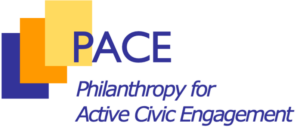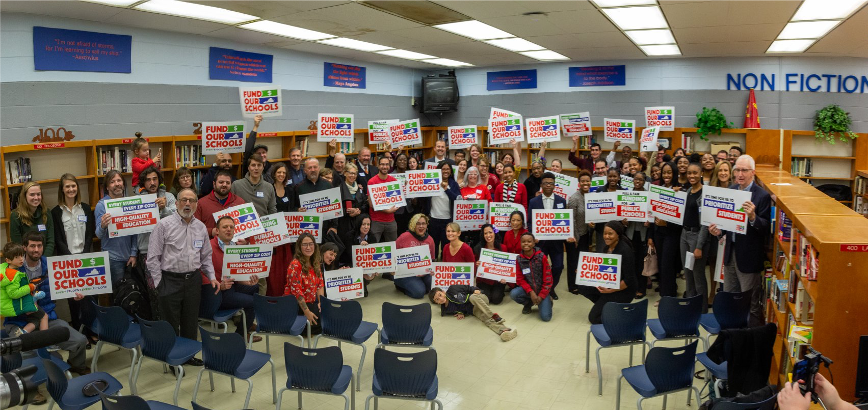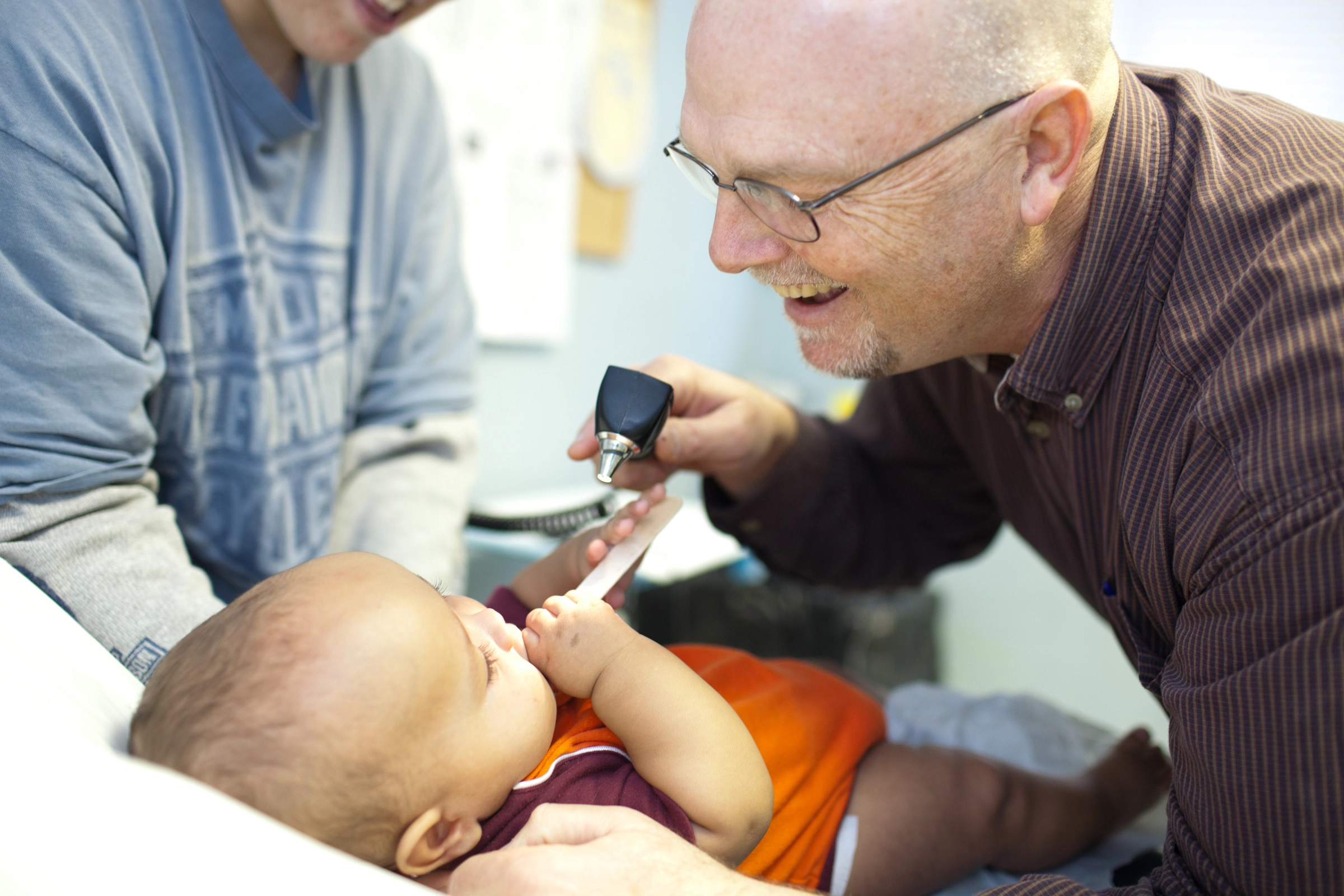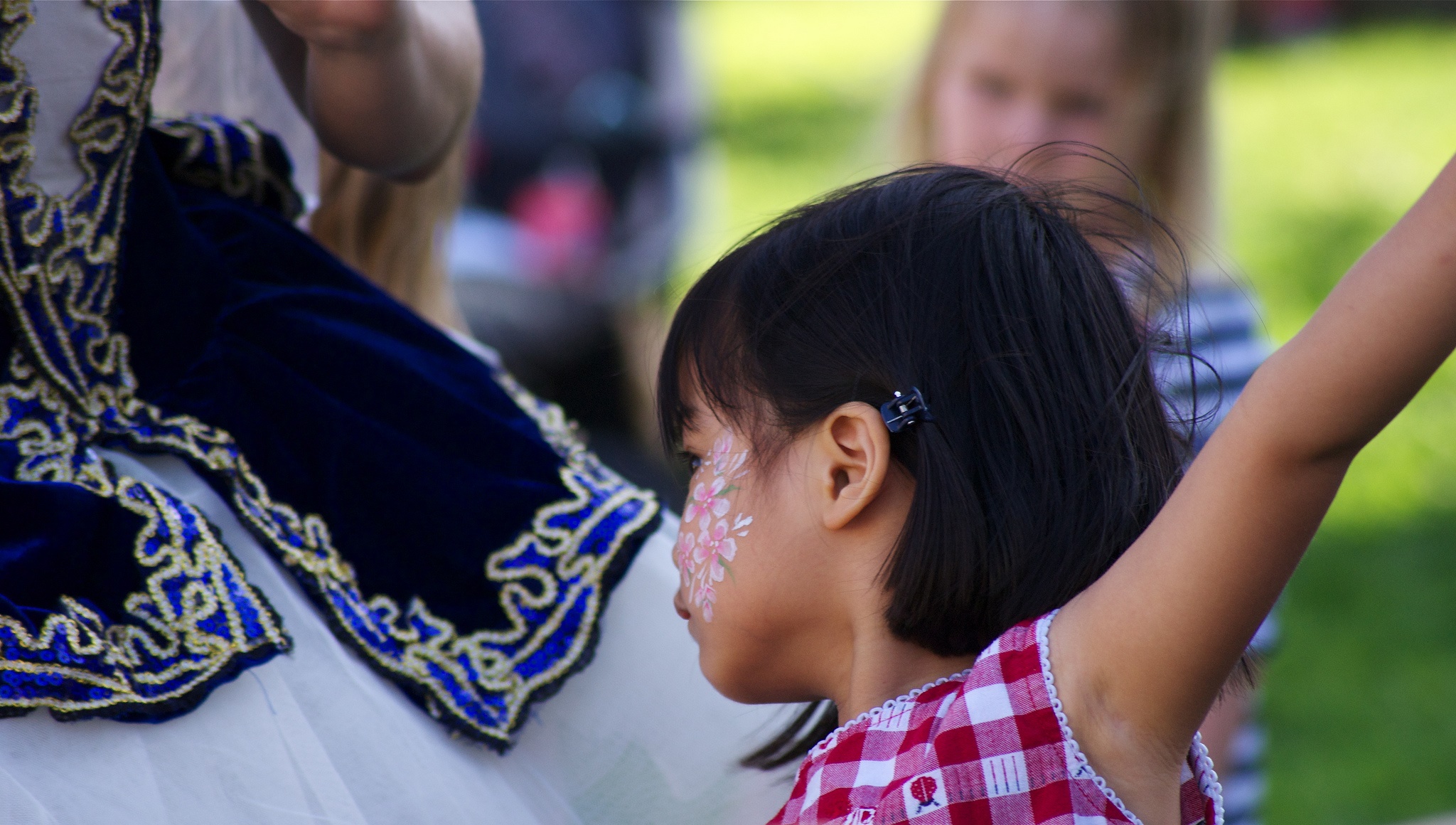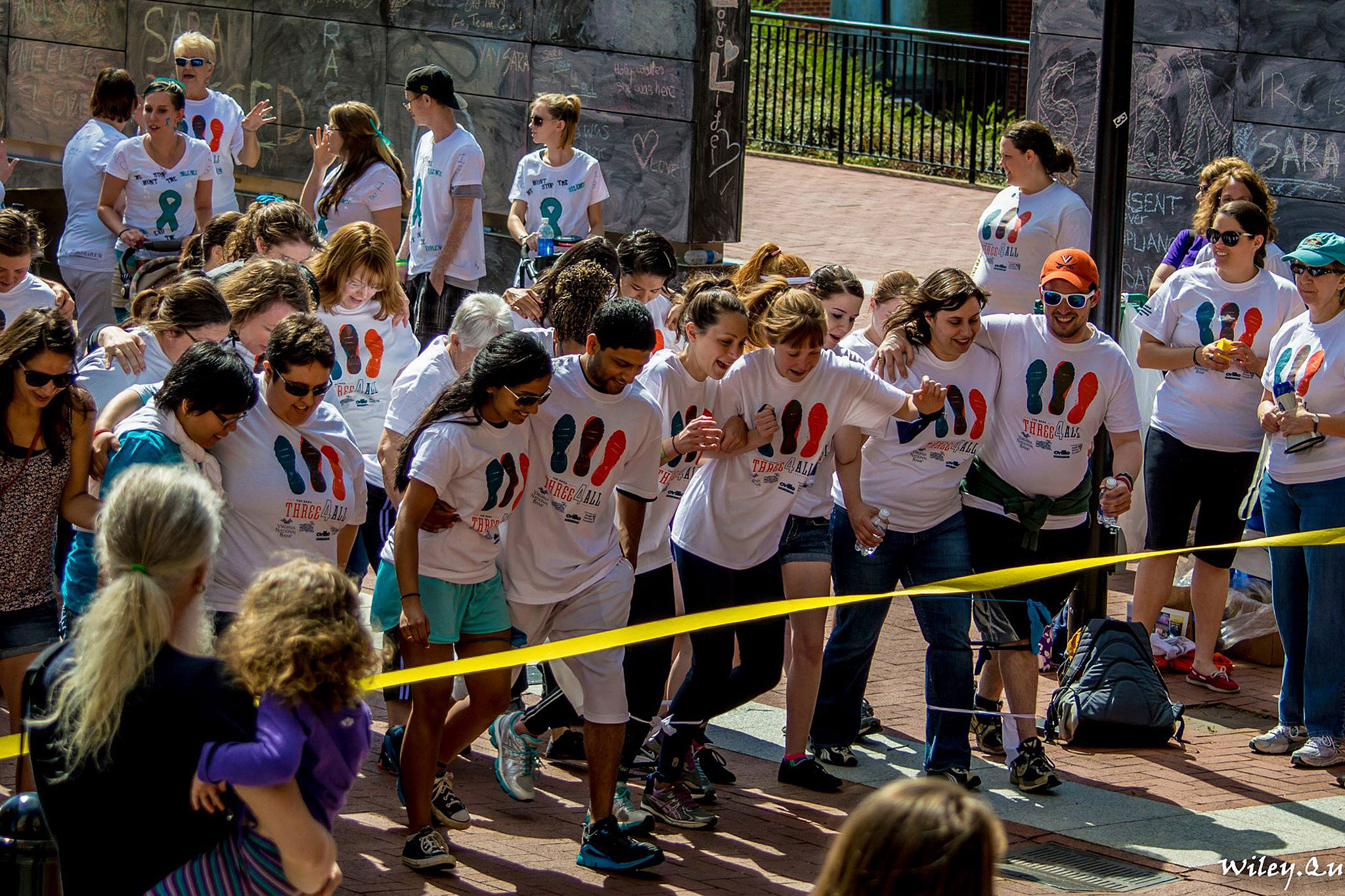
“Bryan Stevenson, who founded the Equal Justice Initiative, said: ‘The opposite of poverty is not wealth. In too many places, the opposite of poverty is justice.’ And LAJC believes that in their core. These are some passionate people.”
– Angela Ciolfi, LAJC’s Executive Director
LAJC believes in using every method of advocacy available in tandem with a community layering model to build deep local relationships and work alongside the clients and communities they serve. LAJC has organizers who proactively go out into the community to be close to what’s happening and what the issues are, and attorneys are expected to be out in the community as well. At the same time, LAJC is working on a national level, challenging national policies with their immigrant advocacy and immigrant rights’ programs. And they’re creating models for what advocates can do in other states, such as their challenge to drivers’ license suspension for unpaid court cost fines. They’ve seen multiple lawsuits in other states modeled after theirs, and serve on the steering committee of a national campaign taking on the issue.
Involvement with CNE
About LAJC
In 1967, a group of Charlottesville attorneys and law students founded the Charlottesville-Albemarle Legal Aid Society – which would become LAJC – in response to the need for civil legal assistance to those who could not pay for services. In 2017, LAJC celebrated its 50th anniversary of providing legal services in Central Virginia and battling poverty and injustice by solving critical legal problems for individuals and communities. They then use what they learn from these efforts to identify, investigate, and attack broader systemic injustices. LAJC provides a full range of services to their clients, including services federal and state governments choose not to fund, by utilizing a mix of individual representation, group and class litigation, community organizing, policy advocacy, and media relations. LAJC has over 50 staff members who work from offices in Charlottesville, Richmond, Petersburg, and Falls Church.
For historical background, Congress created the federal Legal Services Corporation in 1974 to provide funding for free legal assistance to those who would otherwise be unable to afford it on matters falling outside the criminal justice system, such as unlawful evictions, foreclosures, domestic or elder abuse, or wrongful denial of government assistance. Unlike the Sixth Amendment right to counsel in criminal proceedings, courts have not recognized a right to a lawyer in the vast majority of civil cases, and legal aid programs across the country help fill that gap. In 1996, Congress drastically reduced federal funding for legal services and imposed restrictions on the use of that funding. For example, if a legal aid program received any federal dollars, they couldn’t use federal or private dollars to file class actions, conduct any organizing or lobbying, represent undocumented immigrants or prisoners, or help register people to vote. All over the country, legal service programs then split into two – either federally funded programs for straightforward civil defense, or programs that used state funds and private dollars to provide broader advocacy as well as the full range of legal services. This explains why there are two legal aid programs serving our area. The Central Virginia Legal Aid Society is the federally funded program primarily serving Richmond, and LAJC is the non-federally funded program without restrictions on what they can do with their private dollars. Together, the two organizations provide the full range of legal services to low-income communities in Central Virginia.
What Makes LAJC Unique?
“What makes LAJC unique is that we really thrive at the center of this tension [between civil defense and advocacy] because we will both defend you in court from being evicted and we will support the Public Housing Association of Residents and campaign for policy changes with the housing authority to reduce evictions, because the best way of defending an eviction is not getting evicted in the first place. And we see this cycle of providing access to courts enforcing existing laws, which informs us about what needs to change. We communicate and work with communities to change those structures, and then we go back around and start enforcing the new laws, because we see the value in doing both of those things.”
– Angela Ciolfi
LAJC believes in using every method of advocacy available in tandem with a community layering model to build deep local relationships and work alongside the clients and communities they serve. LAJC has organizers who proactively go out into the community to be close to what’s happening and what the issues are, and attorneys are expected to be out in the community as well. At the same time, LAJC is working on a national level, challenging national policies with their immigrant advocacy and immigrant rights’ programs. And they’re creating models for what advocates can do in other states, such as their challenge to drivers’ license suspension for unpaid court cost fines. They’ve seen multiple lawsuits in other states modeled after theirs, and serve on the steering committee of a national campaign taking on the issue.

CNE Membership is Valuable
LAJC joined CNE as a member in October 2006, making them one of the first nonprofits in the area to sign up. Now members for over 13 years, they have found value in membership. CNE is a membership based organization, with over 300 members representing a wide range of mission and service areas, sizes, and lifecycle stages.
“For the price of membership we get a lot of help, so for us it was a bargain. I think for me, CNE has always been: “They’re there.” CNE is like a bank – you don’t need them every day, but you’ll go through spells where you’ll really need them and they’re there. It’s, who do you go to when you are trying to figure out how to do this? When organizations ask where to go when they’re starting out and when they need assistance, I say you need to go to CNE.”
– Cynthia Neff, former LAJC interim Executive Director and current LAJC Board President
CNE is There Through Change
Since the 1990s, LAJC and the Central Virginia Legal Aid Society (CVLAS) have shared one board due to Congressional restrictions put in place at that time, which controlled board composition by requiring outside organizations and Bar Associations to appoint board members. In 2018, LAJC started thinking about splitting the shared board of 30 members (26 of whom were shared) into a board for CVLAS and a board for LAJC, so that LAJC could appoint its own board members and have its board better represent the community it serves. One of the first things LAJC did was contact CNE for assistance through the process. CNE provides customized consulting and technical assistance to help nonprofits strengthen their organizations and manage change.
“CNE played a big role, from providing feedback on governance documents and bylaws, to helping us figure out a process for even having the conversation, and once it looked like we were going to split the boards, how to figure that out. We asked questions like: ‘How many board members should we have? How do you sort 26 people between the two organizations? Who decides? What is the right number of board meetings? Is it every month? Is it every other month? And how do you figure out how to have a fair and transparent process that is respectful of all of those interested?’ There’s a lot of emotion and loyalty and politics bound up in it, so we went to CNE to work together on what we were trying to accomplish. We asked CNE, ‘Can you look at this? Can you tell us if we’re on the right track? Does it make sense? What are we missing?’ CNE has provided one-on-one technical assistance and consultation in person, by phone, and email and it’s been amazing, because we really needed it.”
– Angela Ciolfi
“You think you know board work and you think you know organizational work, until it’s a big change like this. It’s, how do we, the new Executive Director and the old interim Executive Director, how do we orchestrate it? It was a great opportunity to be able to start from scratch, but then we had to not only figure out what we wanted to do, but how to do it. And we could not have done this without CNE.”
– Cynthia Neff
After working with CNE on recommendations for the board and a plan forward, LAJC invited Cristine Nardi, CNE’s Executive Director, to talk to its strategic planning committee, a team of 45 people, and the full board about leading practices, good governance, board roles and responsibilities, and some of the big questions around the board restructuring.
“We thought the presentation was a hit and people really responded. People keep asking for the presentation and were fascinated by the conversation.”
– Cynthia Neff
In September 2019, LAJC’s board approved the splitting of the board, as well as a new strategic plan.
CNE is a Center for Learning
During a recent leadership transition, one of the first things LAJC did was send its leadership team to a CNE workshop on finance as part of Finance Academy. Finance Academy is a partnership between CNE and the CFA Institute to strengthen the financial health and management of nonprofits in the region. It offers a suite of programs and resources – from a Financial Health Review, to webinars, financial assessment tools, and in-depth training series.
“A number of the members of the leadership team attended a “Finance for Non-Finance Professionals” workshop on how to read budgets and financial statements to build skills that we might not have otherwise. It’s amazing that you can find CNE resources to do something like that.”
– Cynthia Neff

CNE is a Center for Leading
Angela Ciolfi has been with LAJC since 2004 and served as Director of the JustChildren program and Director of Litigation and Advocacy. In late 2018, LAJC selected Angela as its new Executive Director, and she stepped into the role during the middle of a strategic planning process and the beginning of the conversation surrounding board restructuring. Shortly thereafter, Angela joined a CNE Executive Leadership Circle, a program designed to support nonprofit leaders and help prevent burnout. Leadership Circles are facilitated small member groups of Executive Directors who meet on a monthly basis.
“Suddenly I went from being a full-time advocate to an Executive Director. I had only been to a board meeting to present on a campaign and so the board was an alien creature. I realized that I had a huge learning curve ahead of me. I go to the Executive Leadership Circle once a month and that has been incredibly valuable. I’ve made good friends and learned about other organizations that are represented at different stages in their development. I can see what transitions we might have to go through and how another organization has managed it. And there’s the psychological benefit of knowing that you are not alone.”
– Angela Ciolfi
“Angela is brilliant, but you know what, she wasn’t born being an Executive Director. Even though she’s been a lawyer, advocate, and legal director for a long time, she hasn’t been a manager for an organization like this. Now she belongs to an Executive Leadership Circle. She loves it, and she’s not the first Executive Director I’ve known to participate. They’re building relationships that last a really long time.”
– Cynthia Neff
CNE is There for Next Steps
In late 2019, LAJC hired its first Director of Communications and consulted CNE’s 2017 Regional Nonprofit Compensation & Benefits Report for salary benchmarking for the new position. In 2018, CNE partnered with the Community Foundation for a greater Richmond to create the first nonprofit compensation and benefits report for our region, incorporating responses from nearly 240 organizations. The report asked about staff demographics, such as race and gender, to gain insight into any disparities in compensation.
LAJC is also looking at its compensation structure more broadly—moving from a seniority-based pay scale to a model that includes respect for seniority but also incorporates skills and accomplishments, with a focus on transparency and equity in leadership opportunities, professional development, and competitive pay so that one doesn’t have to be a person of privilege to afford to work at LAJC. As part of this process, LAJC contacted CNE for HR consultant recommendations, one of whom is now working on LAJC’s internal salary survey. Through CNE’s ConsultCorps service, CNE helps evaluate the scope of the project, identify how best to work with a consultant, and connect organizations to consulting support.
“As we are rethinking our compensation structure, once we start getting some meat on the bones, we are going to go back to CNE and say: ‘What are we not thinking about? What are some other models?’”
–Angela Ciolfi
LAJC’s newly approved strategic plan is oriented around four pillars – supporting staff, leadership, governance, and defining who LAJC is – with racial justice and equity as the through line. While LAJC has done racial justice work throughout its history, this is the first time that its board has explicitly embraced racial justice and equity as an animating feature of LAJC’s work. Going forward, LAJC plans to contact CNE for racial equity assessment models and consultant recommendations. In the fall of 2017, CNE began to develop a Justice & Equity Initiative to partner with members and nonprofits in this important work.
And for the governance pillar of the plan, LAJC is looking forward to having its board – its new, restructured board – more engaged. They’re going to reinvigorate board meetings through action-oriented agendas and meeting now every other month to give the board time to do its work, creating committees, and involving the board in philanthropy and donor stewardship—something the board has not had much direct responsibility for up to this point. As LAJC engages current board members and recruits new ones, they plan to take advantage of CNE’s Board Orientation workshop and Board Academy, especially to support those who have never served on a board before. As part of CNE’s Governance Matters, CNE provides a wide-range of training topics, formats, and schedules to boards and board members to meet them where they are – from early morning short governance trainings, to half-day board orientation workshops, to Board Academy, a deep dive into the most critical aspects of good governance.
Through years of CNE membership, lifecycle stages, inevitable change, and growth, LAJC has seen CNE as being there for them, and for the community.
CNE is a Center for Advocacy and an Important Community Resource
“Why do we have so many nonprofits and yet the community of nonprofits is tighter than in many other places? People work together, know each other, and I think that is because of CNE. There’s a natural kind of cohesion because people meet and hear what’s going on. I think CNE has had a huge impact in the community in terms of really being the voice of nonprofits. It’s amazing, when you think about how many nonprofits we have and all of the people who benefit from them, to have somebody like CNE as a resource.”
–Cynthia Neff





